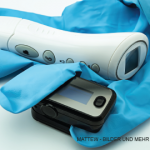She sees this as a first step toward naming some of these syndromes. Now, it’s possible for physicians to cluster some of these periodic fever syndrome patients. They may have specific genetic changes that haven’t been identified yet, but may be identifiable now that a specific clinical phenotype of fevers, skin rashes and other systemic complaints, such as arthritis or serositis, has been developed.
“An individual physician is going to see a handful of periodic fever syndrome patients,” says Dr. Sule. “The best thing is for [rheumatologists] to be made aware that undifferentiated autoimmune patients can present with significant organ involvement, such as pericarditis and neurocognitive disease. Genetic testing, as it becomes cheaper, is very important and will move the field forward.”
Kurt Ullman is a freelance writer based in Indiana.
Reference
- Ter Haar NM, Eijkelboom C, Cantarini L, et al. Clinical characteristics and genetic analyses of 187 patients with undefined autoinflammatory diseases. Ann Rheum Dis. 2019 Oct;78(10):1405–1411. Epub 2019 Jul 5.

